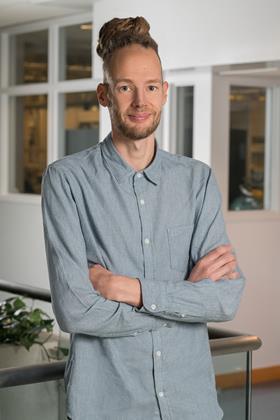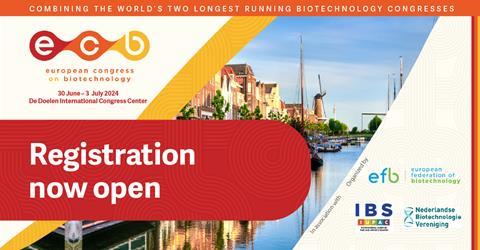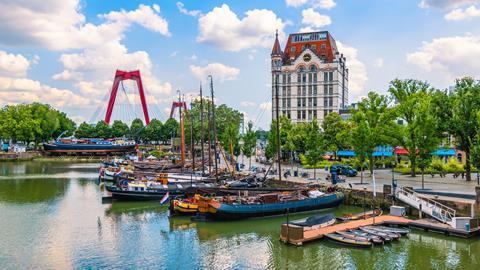From June 30 - July 3, 2024, the international biotech community gravitates towards The Netherlands as Rotterdam is hosting the European Congress on Biotechnology (ECB). The editors at C2W International are already exploring the programme and offer you regular previews. This week, we catch up with plenary speaker Michael Köpke, Chief Innovation Office at LanzaTech.
Tackling the vast amount of CO2 emitted each year is the number one priority for scientists and engineers around the world. Various strategies are explored, from preventing the formation of CO2 by changing processes and feedstocks to capturing CO2 and turning it into a feedstock itself to produce new, carbon-based building blocks. The latter route can be addressed through chemistry, but that has proven far from trivial.
There is however, another way and that involves biology. This is where the pioneers of US-based LanzaTech come in. ‘Biology has been fixating carbon for billions of years’, says Michael Köpke, LanzaTech’s Chief Innovation Officer. They deploy that capacity in their innovative bioreactors. ‘We capture carbon emissions and use those waste streams as a feedstock for our micro-organisms to produce new chemical building blocks through gas fermentation.’ These micro-organisms are not your traditional E. coli or S. cerevisiae, but so-called acetogens; anaerobic organisms that can deal with CO2, CO, H2 and mixtures thereof.

Robust
Getting these organisms to selectively produce the desired products at high yields required some serious R&D efforts, says Köpke, who has been with the company for already fifteen years. ‘It involved genetic and metabolic engineering, synthetic biology, process development and pathway optimization. I experienced the whole journey from initial lab results to the various scale-up stages leading to currently six commercial plants in operation that together deliver 300,000 tonnes of product while at the same time abating 0,5 megatonnes of CO2 that would otherwise have been emitted to the atmosphere.’ Examples of these products are ethanol, acetone, isopropanol and monoethylene glycol; all of them major building blocks for the chemical industry.
The commercial fermentation plants Köpke is referring to all involved co-localization with existing industrial operations, such as that of steel-giant ArcelorMittal in Ghent, Belgium. ‘Here we have established a facility with our bioreactors that captures and uses the carbon-oxides emitted from the production site as a feedstock for producing new, chemically relevant products.’ But doesn’t that require some purification steps first? Such gaseous waste streams are not pure streams. ‘That’s one of the major benefits of using biology’, Köpke points out. ‘Biology is very robust, living systems can deal with fluctuating conditions and have evolved to deal with contaminants.’
Non-traditional platforms
So far, it seems that there is no end to the product repertoire LanzaTech can squeeze out of their micro-organisms. ‘ We strategically focus on C2,3,4,5 blocks, but we have established proof-of-concept for more than one hundred building blocks. Biology is really very good at turning a chaotic input into a specific output.’
To what extent can biology solve the immense problems we’re facing? ‘We need to get to gigatonnes level of CO2 mitigation, that’s for sure’, says Köpke. ‘But of course, we will not solve everything. We believe that uur technology can be a key part of the puzzle and is very relevant for the hard-to-decarbonize sectors, like the steel industry or the production of cement and concrete, as well as sectors like the aviation industry.’
Looking ahead to ECB 2024, Köpke states that partnerships have always been and still are important to LanzaTech. ’When we started out with these acetogens, we needed to develop genetic tools and advance our understanding of their biology and that meant teaming up with others. And that is still the case. Yeast and E. coli are well-studied, but more research is needed on non-traditional platforms. Participating in ECB may lead to new partnerships to further explore these platforms.’
Michael Köpke will be presenting on Monday July 1, 2024 at the European Congress on Biotechnology (ECB). The ECB takes place from June 30 - July 3, 2024 in De Doelen International Congress Center in Rotterdam, The Netherlands.
For more information on the programme and registration, please check the ECB website. Members of NBV (Dutch Biotechnology Association) or KNCV (Royal Netherlands Chemical Society) qualify for a 10% discount on the Standard and Academia registration fees.
Early bird registration fees are available untill May 24, 2024.














Nog geen opmerkingen